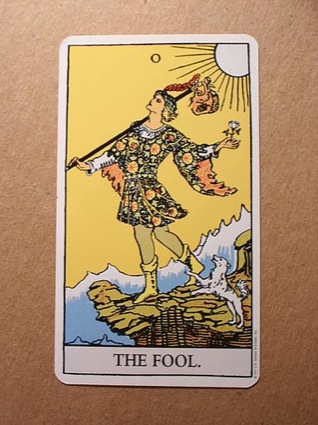Well, several people have told me recently that I should read some Charles Williams. He was after all the third major Inkling. So I picked up a copy of The Greater Trumps from the library.
Nearly all of Williams novels have some kind of supernatural plot device. Despite being a Christian, he had a lifelong fascination with the occult. Black magic of various sorts works it’s way into many of his stories. Apparently, Tolkien, for all the magic that appears in The Lord of the Rings, actually held to the traditional view that sorcery really was sourced in demonic powers and an abomination to God. He was always somewhat annoyed at how lightly Williams spoke of it.
This particular novel centers around tarot cards. I must admit, I found the subject somewhat intriguing. Growing up, tarot cards were in the piled in with Ouiga boards and other contraband. I knew very little about these sorts of things as they were forbidden. William’s novel both gives them some legitimacy while at the same time revealing Christ at work in their midst (through the card with the image of The Fool), making a mockery of the card’s mysteries and showing himself to be Lord of the past, present, and future.

This is not unlike theories I’ve heard about how the Zodiac cycle used by astrologers actually tells the story of the redemption of mankind.
A few interesting facts about tarot cards:
- Tarot cards were first created in the early 1300’s, with the oldest surviving set being from 1442.
- The cards were apparently not used for divination or any kind of occult practices until the mid 1700s! They were just for playing games until then.
- Tarot cards are popular in Europe (especially France and Italy) for various card games. Their use in divination really only shows up in English speaking countries like Britain and the U.S.
- Tarot divination is loosely based on medieval alchemy and the Kabbalah of Jewish mysticism. That Kabbalah stuff seems to show up all over the occult. It includes, free of charge, all kinds of nifty diagrams to represent super-secret stuff.
William’s novel starts out interestingly enough, but about halfway through it takes a nosedive into dream-sequence mushiness. What a shame. Nothing disappoints like a bad ending.
I still haven’t written Williams off yet though. I’ve begun reading what HE thought to be his greatest work, his Arthurian cycle Taliessin through Logres, The Region of the Summer Stars.
I’ve also heard that The Decent into Hell is his best novel. After that maybe I’ll have a more informed opinion.
